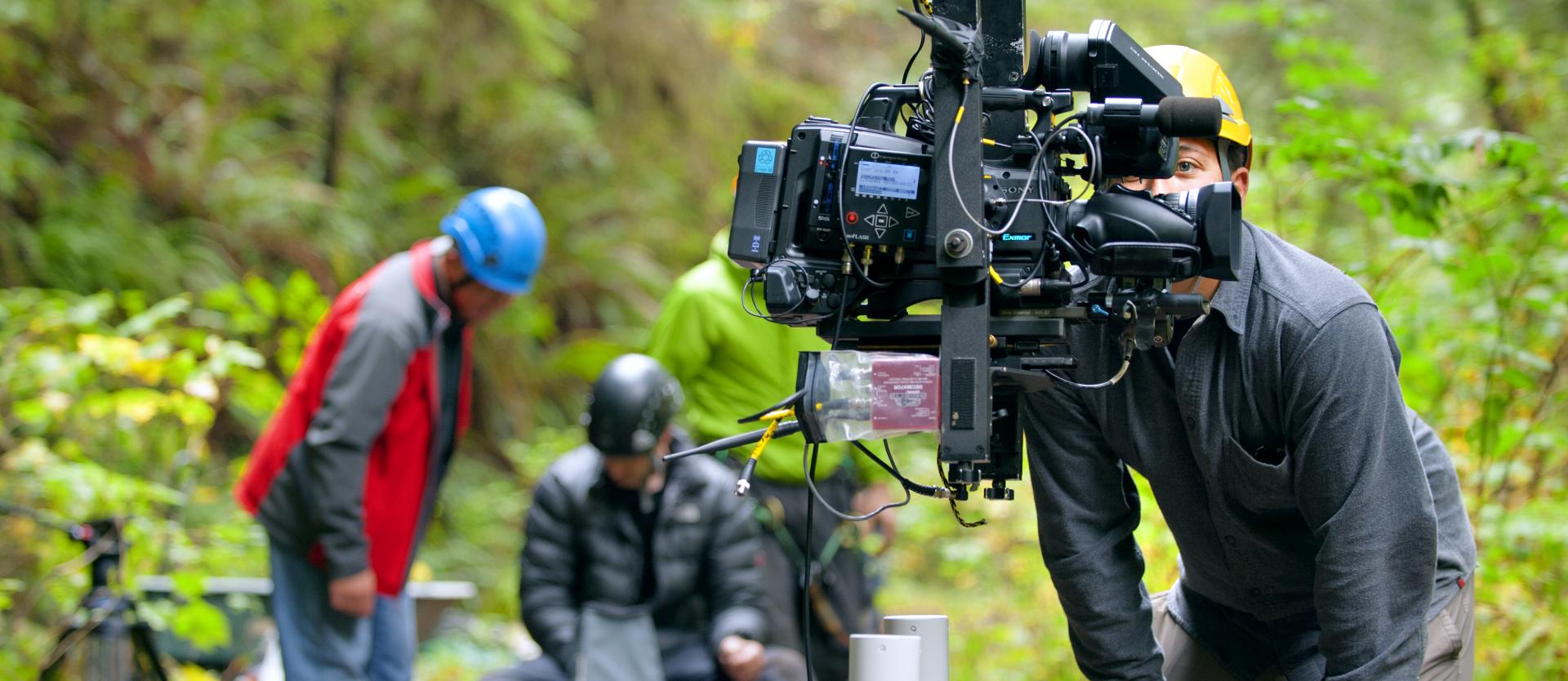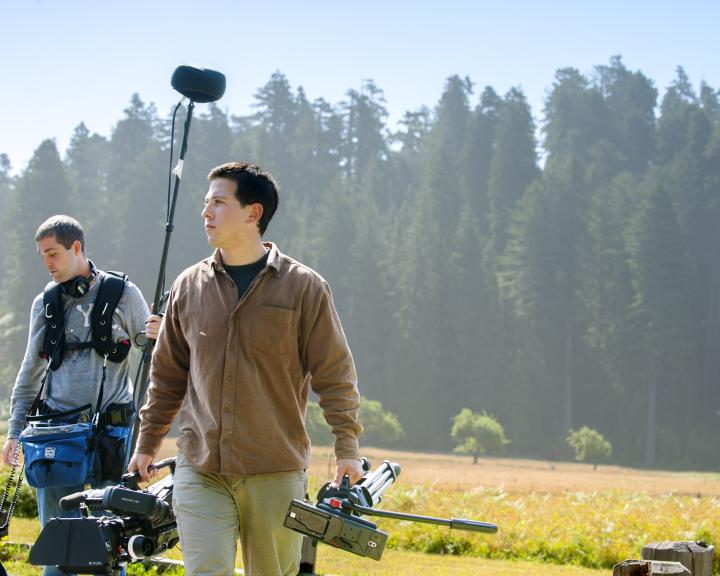Breadcrumb
Film, B.A.
“Cal Poly Humboldt! Scene 1! Take 1!" With the clap of the slate, your filmmaking journey begins. The training you'll receive through Cal Poly Humboldt's Film program will prepare you to turn your own cinematic dreams into reality. With top-of-the-line equipment and production facilities, small class sizes and some of the most picturesque backdrops on the planet, budding filmmakers have been using Humboldt’s program as a starting point for decades.
Why this Program
Broad-Based Curriculum
Cal Poly Humboldt’s Film curriculum integrates creative exploration and technical skill development with film theory and history. It’s grounded in a liberal arts education that encourages ethical storytellers to explore the human condition in creative ways.
Learn From the Pros
Instructors are working professional filmmakers who enjoy sharing their experiences with students, whether it’s working with industry pros on location, filming around the world as independents, or writing scripts that help create impactful cinematic stories.
Practical and Personal
Hands-on filmmaking classes are small and skill-based. Professors often work one-on-one with students.

Did you know?
Since 1967, Film students have run the Humboldt Int’l Film Festival, the oldest student-run festival in the world!
Students learn filmmaking with state-of-the-art video and audio production and post production equipment as well as traditional 16mm processes..
In addition to great nearby shooting locations, the program has an extensive collection of costumes and props.
There are opportunities to study abroad or to take on an internship.

Get a college degree that gives you job skills, opportunities to develop your own creative vision, and have fun while learning!
Steeped within the traditions of independent filmmaking, students learn the fundamentals of fiction and non-fiction film through a production-based, hands-on program. Our curriculum integrates creative exploration and technical skill development with film theory and history, grounded in a liberal arts education that fosters ethical storytellers who artfully explore the human condition in creative ways.
In our foundational Filmmaking I-IV core classes students will develop and master the fundamentals of film and digital production while learning industry protocols, practices and technical workflows. Creating impactful, cinematic stories through the craft and artistry of directing, writing, cinematography, and editing are key components of these courses. We offer advanced electives in other areas such as screenwriting, cinematography and directing.
Students have an opportunity to focus on the environment, social change, natural history and science filmmaking. Humboldt County is home to prime location filming: beaches, redwood forests, Victorian villages, rural farmland, coastal port towns and more.
All aspects of the program stress professionalism with an emphasis on quality as well as collaborative and creative processes. Small class size allows for robust participation and discussion by all students and individualized instruction with faculty who are working professional filmmakers.
Students are encouraged to develop films that will identify and reach underserved audiences that exist outside mainstream media and commercial venues. Humboldt Film educates students to be an independent voice that is part of the change advocated by Humboldt’s mission statement.
The way audiences consume media and the way filmmakers make and deliver it is constantly evolving. Humboldt Film prepares graduates who will be flexible in this ever-shifting environment by stressing solid story development, combined with creative and technical agility. Graduates find jobs as cinematographers, videographers, camera assistants, film editors, sound mixers, boom operators, grips, gaffers, associate producers, line producers, documentary directors, media consultants, screenwriters, script supervisors, production designers, production coordinators, art directors and production assistants.
Students are encouraged to have a minor area of study that complements their film interests, expands their skill set, enhances the depth of their culminating reel (i.e. portfolio), and advances their post-education professional employment opportunities. Interdisciplinary studies foster better critical thinkers and more active participants in social change. The combination of a science or social science minor and a film major empowers students to better disseminate their research to new and underserved audiences, which in turn positively impacts society. Film Minor Requirements
Rural Northwestern California offers more than Coastal Redwoods and ocean research for Humboldt’s strong science programs. This area is also home to the growing back-to-earth organic and sustainable agriculture and enlightened social movements that are engendering social change in our society. Humboldt has long been known as one of the most “unique” CSU campuses for its science and art curriculums, as well as for its local culture of expanded human consciousness and work to sustainably preserve the environment.
Careers
From script writing to cinematography to directing and editing, Cal Poly Humboldt’s Film program prepares you to take part in whatever part of this multifaceted industry interests you.
- Camera operator
- Cinematography
- Director
- Film criticism
- Film editing
- Lighting
- Producer
- Screenwriting
- Sound production
- Visual effects







